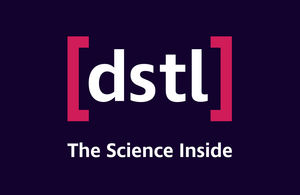£7m investment in Electromagnetic Environment Hub
Academics will work in collaboration with industry partners to drive innovation in electromagnetic activities and enhance defence capabilities.

The Defence Science and Technology Laboratory (Dstl) has announced a £7 million investment in the Electromagnetic Environment (EME) Hub.
The electromagnetic environment is critical to defence. In an increasingly contested environment, this involves the ability to protect and maintain our own capabilities but also countermeasures to disrupt those of an adversary. The challenge is to maintain freedom of manoeuvre and action in the electromagnetic spectrum in order to retain operational advantage.
The EME Hub is a centre of excellence led by academics working in collaboration with industry partners to drive innovation in electromagnetic activities. The focus is on generation-after-next capability for the wireless delivery of offensive and defensive effects – the ability to degrade, deny, destroy, deceive and disrupt – and assessing the impact of these effects. It will also concentrate on the synchronisation and coordination of wireless activities across deployed assets regardless of defence operating domains (air, space, land, sea, cyber and electromagnetic).

The Hub also has a mandate to grow the science and technology (S&T) community and to contribute to development of specialist skills and education. Led by Loughborough University, the academic consortium has a strong regional representation comprising Queen Mary University of London, the University of Leeds, the University of Glasgow, and Queen’s University Belfast.
The 5 UK academic partners each bring a history of sustained specialist research, as well as working with national and international academics, government agencies and industry. Importantly, the consortium is supported by defence primes and industry including BAE Systems, CENSIS, Hensoldt UK, Kromek Group, Leonardo, MDBA Missile Systems, the National Physical Laboratory and QinetiQ.
The initial operating capability will include five post-doctoral researcher positions, a Hub management team, and at least 17 PhD students of which 9 are directly funded. This diversity, not only in academic strength, but in geographic coverage of the UK, ensures that the Hub will provide a national network that exploits the best of UK capability and research diversity.
The Hub will provide outstanding training for future leaders and talented researchers, enhancing defence capability and securing the UK’s place as a global leader in EME related research and generation-after-next electromagnetic activities. The consortium’s track record underpins its ability to deliver the research, to develop networks, and to undertake and support engagement activities, both within and beyond the five-year funding lifetime of the Hub.
Dr Paul Hollinshead, Dstl Chief Executive, said:
It’s a privilege to announce this new investment during British Science Week. The EME Hub brings together the best minds working in the electromagnetic environment from industry and academia with the drive and leadership from government. As well as innovating generation-after-next technology we will be nurturing the next generation of talent to continue this crucial work into the future.